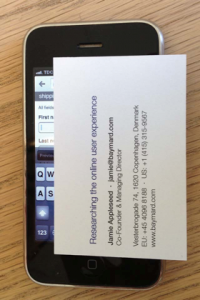- Apr 15, 2015
- 2
- 0
- First Name
- Arley
A major consideration in favor of RWD (vs mobile specific) is the fact that Google "recommends" it. They punish site ranking when mobile and desktop experiences don't feature the same page/content structure.
As for AWD, using % over px gives a way safer fall-back for new devices; it really gives a much greater predictability on devices you haven't tested on (there may be a few), while making the best use of screen space. I've been building responsive sites since 2010 and would argue that RWD can be faster to develop than AWD with a solid CSS grid system in place!
As for AWD, using % over px gives a way safer fall-back for new devices; it really gives a much greater predictability on devices you haven't tested on (there may be a few), while making the best use of screen space. I've been building responsive sites since 2010 and would argue that RWD can be faster to develop than AWD with a solid CSS grid system in place!










